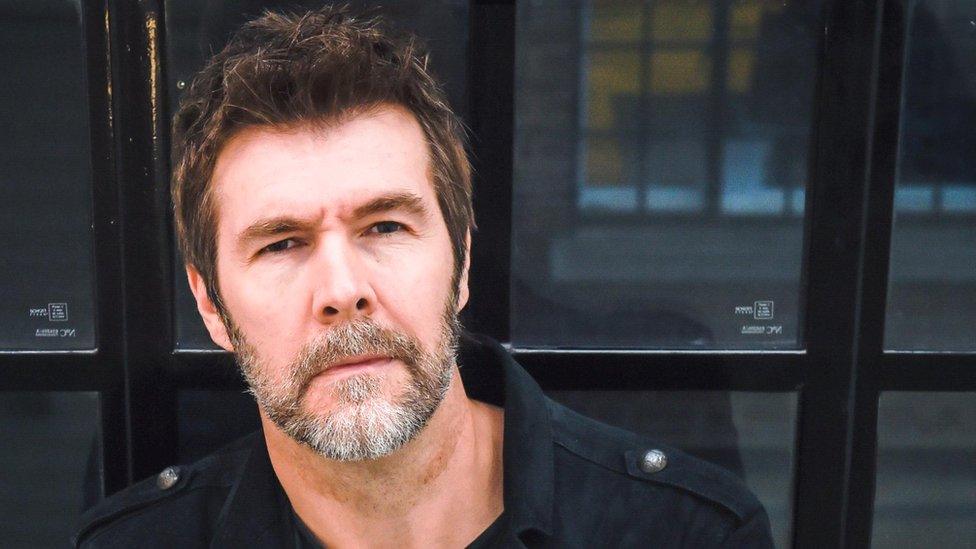Dad addicted to morphine after cancer 'misdiagnosis'
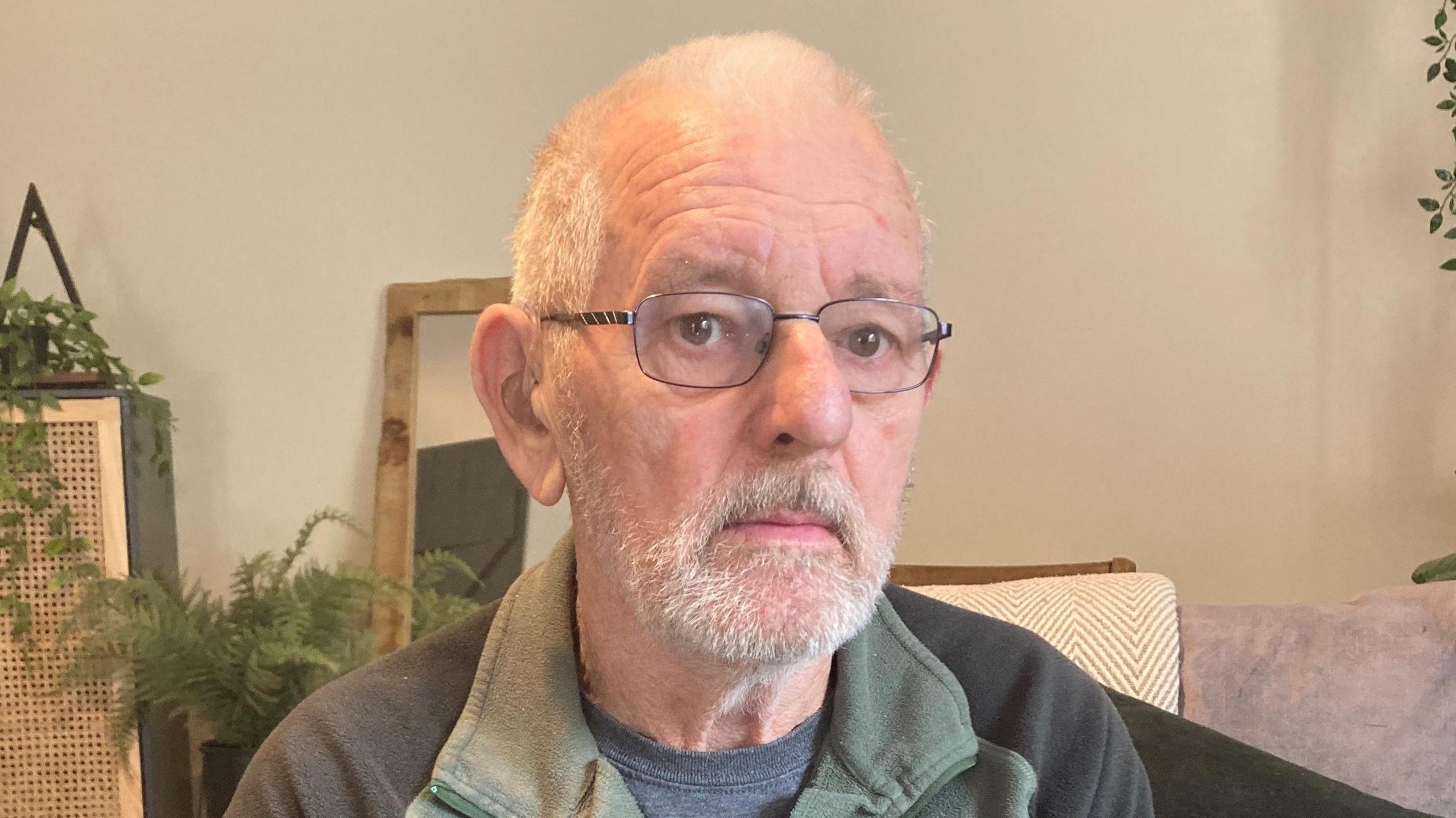
Colin has depression and struggles to get out of bed after years of taking painkillers following his cancer diagnosis
- Published
A man became addicted to morphine after what his family have said was a misdiagnosis of terminal cancer.
Colin Whitney, 76, from Hay-on-Wye, Powys, was given as little as two weeks to live in May 2020 after a diagnosis of stage four cancer in his bone marrow.
He was told in February this year he had made a "miracle" recovery, but his family said his other health issues may have not been addressed in that four-year period.
Powys health board said it took all complaints seriously, while Aneurin Bevan health board said the correct diagnosis had been made at the time.
Welsh woman unable to have cancer op in England
- Published22 July 2024
I won't ignore cancer tests like mum did, says BBC presenter
- Published10 May 2024
AI photos show people with cancer their lost future
- Published30 March 2024
Mr Whitney, a former carpenter, had previously lived an active life, but was treated in 2019 for fluid around his heart.
After further tests, he was told by doctors at Nevill Hall Hospital in Abergavenny, Monmouthshire, he had lymphoma and underwent chemotherapy - although he only completed six of the 10 scheduled courses of treatment "because it made him very poorly", according to his daughter Rebecca.
By early 2020 he remembered "ringing a bell" to signal that he was cancer free - only for a Skype call during lockdown with specialists to shatter that illusion.
"One of them said that it was bad news," Mr Whitney said. "I got cancer, and it wasn't very good. It wasn't going to be long term.
"But five years later I'm still here."
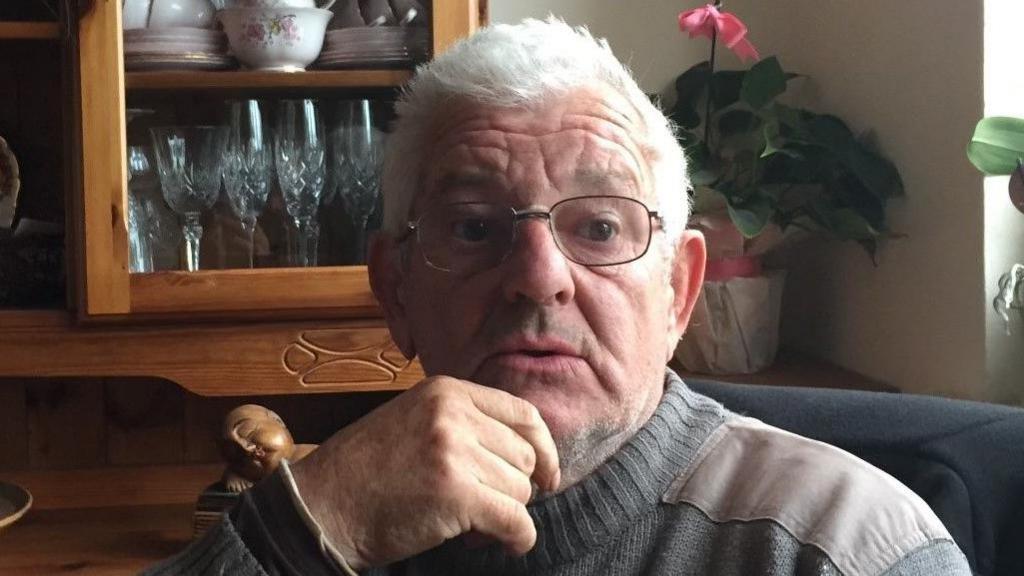
Colin Whitney's family say he was healthy and active before 2019
The prognosis put the family's lives on hold, with Rebecca moving in with her father to take care of him - all the while dreading the fateful day.
"Every day when I went to work and when I came home, I had to sit outside and get myself prepared, thinking that dad's going to be dead," she said.
For her brother Adam, living in Cardiff meant an apprehensive phone call every day.
"Every single morning, me and Becky used to speak to each other, just to chat before checking on dad, because you just don't know when that day was going to come," he said.
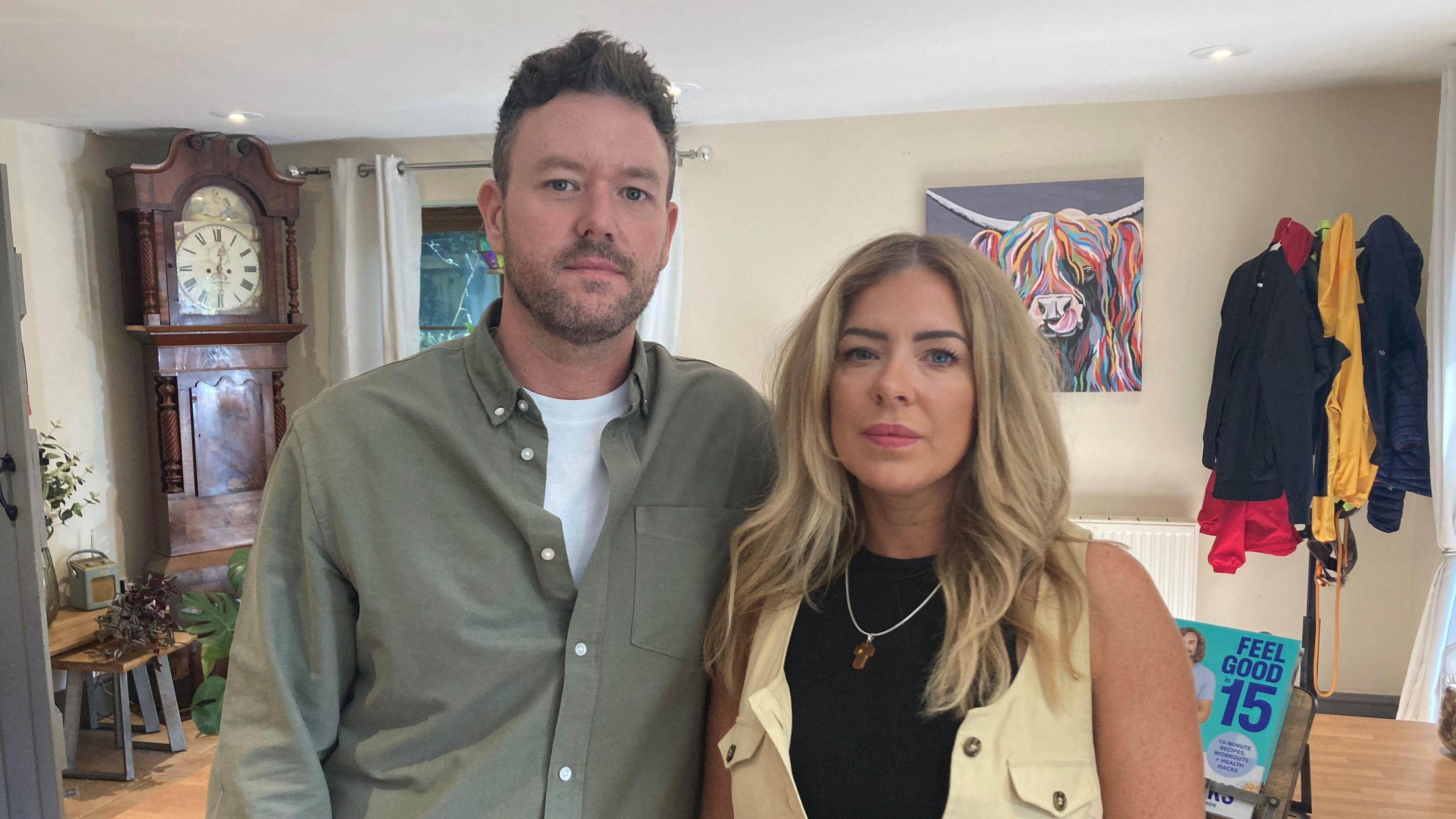
During lockdown Adam made daily calls to his sister Rebecca to check on their father's condition
But months turned into years, with Mr Whitney saying the ordeal had left him "depressed" and addicted to painkillers given to him as part of his palliative care.
Rebecca said her father now slept for 20 hours a day and could only leave the house for hospital appointments.
The family had suspicions about the original cancer diagnosis and were told the "astonishing" news in February that the cancer was not there after further tests.
"Their words were, 'oh my goodness, we're totally shocked and surprised'," said Adam.
"Here you are, a walking miracle."
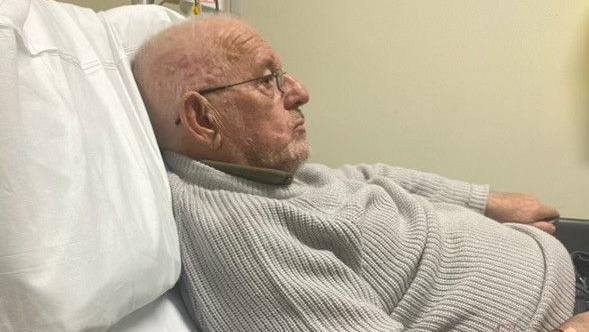
Mr Whitney became very ill during chemotherapy
In a letter in June 2024, Aneurin Bevan health board "apologised for the distressing impact" of the family's experience, but said its review found there was "no doubt" the correct diagnosis had been made in 2019.
The family, however, do not believe this to be a plausible explanation.
Rebecca said: "You've lived for four-and-a-half years thinking someone's going to die of terminal cancer, and then to be told it's completely gone, go home and deal with it, is astonishing."
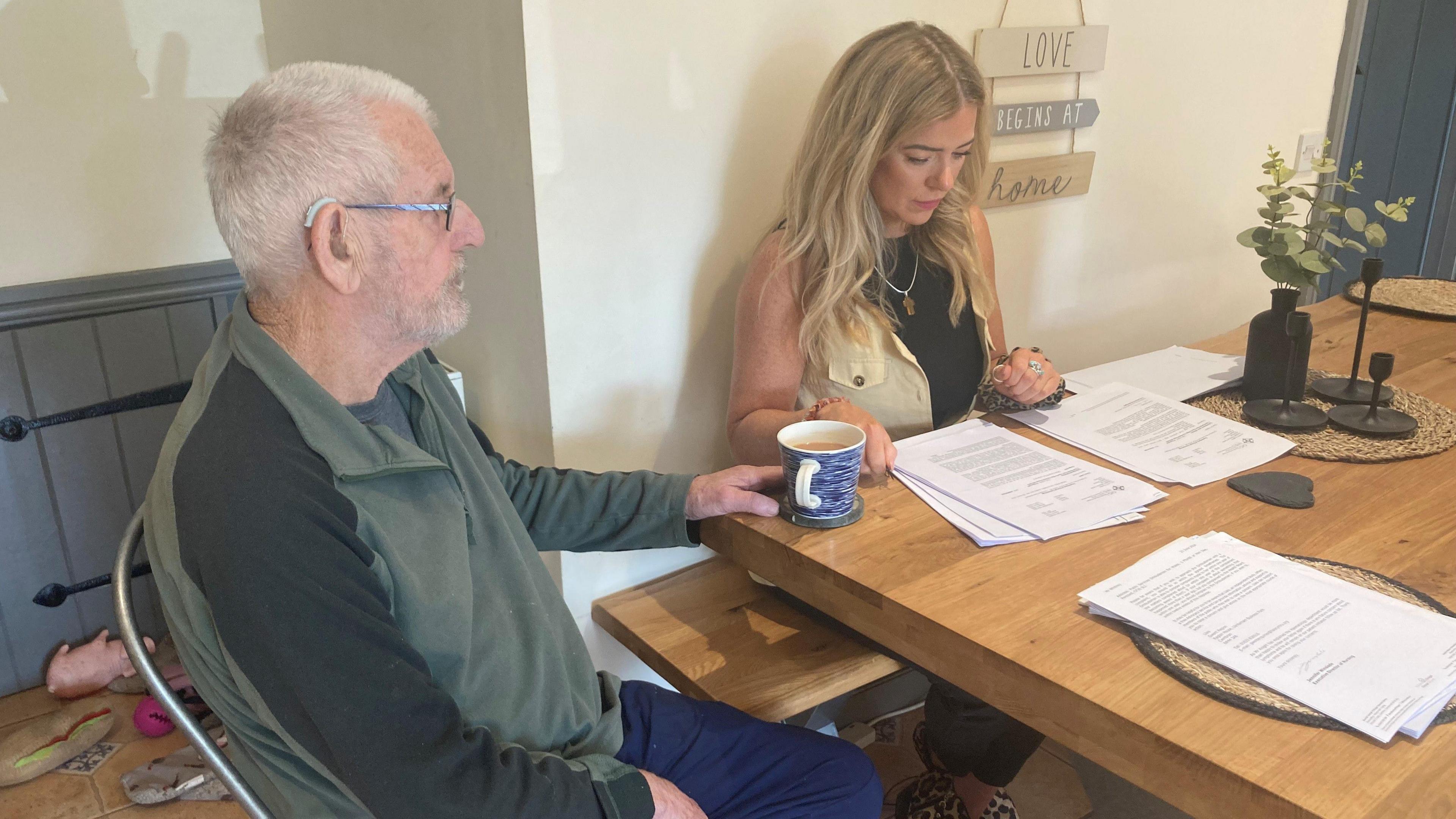
Rebecca moved in with her father following his terminal diagnosis
Mr Whitney's family have questioned why healthcare professionals did not pick up on his unexpectedly long survival earlier, and the effect of that.
Adam said: "On the face of it, news, it is good news, right?
"But it just raises loads more questions, because dad's still really ill, and we don't get to the bottom of what's going on.
"And then we reflect back on how life could have been different if we were given the correct prognosis four years ago."
Rebecca said the past six months had been "unbearable" due to the doubts over the original diagnosis.
"It's worse than living with someone who you think is going to die imminently from terminal cancer," she said.
Seeking answers, the family paid for a private MRI scan last month which revealed Colin had heart issues and lesions on his brain.
This led to urgent referrals, only to then be told by Powys health board he faced a 61-week wait for a cardiology appointment.
"All we want is to find out what's wrong with him, and for him to be on the correct medication," said Rebecca.
"Hopefully he can recover, or if not, have a more comfortable life.
"We can then all move on with our lives, because right now, it's been half a decade and everyone's been in limbo."
The family has raised concerns with Powys Teaching Health Board, where Colin's GP is located and provided services like his palliative care, and with Aneurin Bevan health board, which was responsible for his lymphoma diagnosis.
They are waiting for a third "final response" from Powys health board.
Powys health board told BBC Wales: "We take all complaints and concerns very seriously, and we are working with the family to look into the issues raised as a matter of priority.
"Our commitment to patient confidentiality means that it would be inappropriate for us to comment on individual care and treatment."
Aneurin Bevan health board said: "We are very sorry that Mr Whitney and his family remain unhappy with the outcome of the meetings surrounding his care, and we do not underestimate how upsetting and distressing this situation must have been for both Mr Whitney and his family."
Mid and West Wales Senedd member Jane Dodds said the lack of clarification was "not acceptable".
"They are measured and reasonable in their asks of the health authorities, and really what they're asking for is clear and simple," she said.
"Answers as to what happened five years ago, but more importantly, they want to know what is going on right now, and urgently for their dad to be treated."
Related topics
- Published23 August 2024

- Published21 April 2024
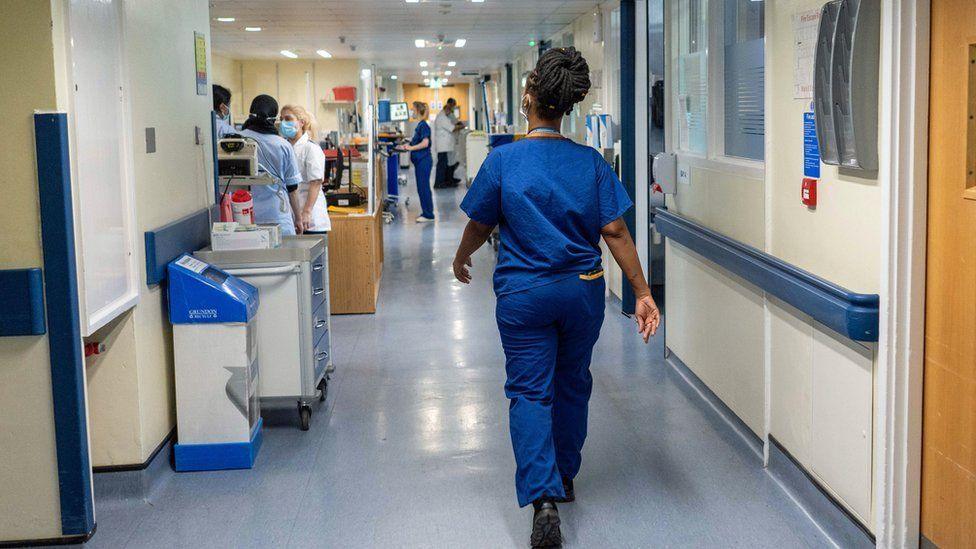
- Published10 March 2024
